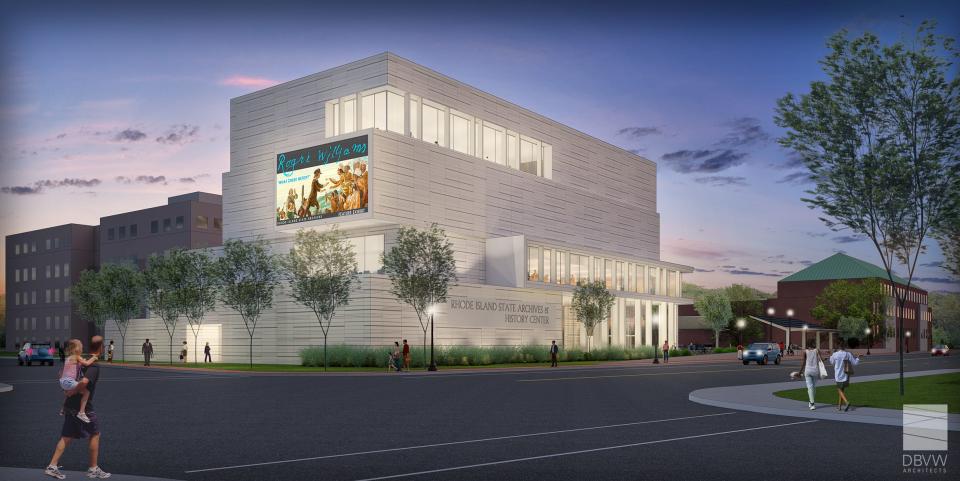State archive can serve as a vital center for civic life | Opinion
Erik J. Chaput is the author of "The People’s Martyr: Thomas Wilson Dorr and His 1842 Rhode Island Rebellion," which utilizes material from the State Archives.
Rhode Island Secretary of State Gregg Amore recently called for the construction of a building in Providence to display the state’s rich archival records, echoing the call of his predecessor Nellie Gorbea. For decades, the state has been forced to lease space, utilizing buildings not always suited for the preservation of historical documents dating to the 17th century. At a news conference, Amore indicated that a new building could also house a museum in addition to state-of-the-art preservation of documents and objects. This idea could not only serve to protect and showcase the state’s treasures, it could also serve as a vital center for civic life.
As a nation, we are living in extremely polarized times, ripe with massive amounts of disinformation that can be hard for citizens to sort through. Coupled with this, many young adults do not even possess a minimal level of civics or historical knowledge that could help them sort fact from fiction.
More: Why Secretary of State Amore and his pocket Constitution are touring RI classrooms
The 2020 opinion of U.S. District Judge William E. Smith in the recent case Cook v. McKee illustrates the challenges we face. The case dealt with the question of Rhode Island students’ constitutional right to a quality civics education. Judge Smith was forced to dismiss the suit because the U.S. Supreme Court has never recognized a constitutional right to education, but he informed the plaintiffs that their suit was vitally important.
“We may choose to survive as a country by respecting our Constitution, the laws and norms of political and civic behavior, and by educating our children on civics, the rule of law, and what it really means to be an American, and what America means. Or, we may ignore these things at our and their peril,” Smith said.

This is a house-on-fire conversation. Only 22% of eighth graders scored at or above the proficient level in civics according to the National Assessment of Education Progress. Levels in U.S. history knowledge were even worse.
In 2022, the Rhode Island Civic Learning Coalition worked with Tufts University to collect data on civic learning in Rhode Island to better understand the challenges facing teachers and students. A published summary of the results noted that the “ad hoc approach” to instruction resulted in “significant inequities in the quality of civic education” and “students’ civic development outcomes.”
More: RI outlines steps to strengthen civics education in response to lawsuit
An interactive state archive in Providence could be transformative in terms of helping teachers and telling stories relating to crucial elements of democracy, including the nature of citizenship, economic development, constitutional interpretation, voting rights, racism, immigration and educational policy, to name just a few themes represented in the state’s archival collections. This work could be coupled with the material from the vitally needed Educating for American Democracy initiative, which could help teachers and administrators grapple with recommendations from the recently completed Rhode Island Civic Readiness Task Force.
In one of his first major public addresses in 1838, Abraham Lincoln worried that the country was ripe for a takeover by a strong man, an “Alexander, a Caesar, or a Napoleon,” as he put it. Is it unreasonable, he asked, “to expect that some man possessed of the loftiest genius, coupled with ambition sufficient to push it to its utmost stretch, will at some time, spring up among us?” Lincoln was deeply worried that “men of sufficient talent and ambition” would not be around to stop it.
The study of Rhode Island history at an interactive museum could help teachers find ways to understand how the past has shaped us, to understand why the past matters so much to our future, and to help students understand how civic life has been vital to our nation and what it means if it is lost.
This article originally appeared on The Providence Journal: We are living in extremely polarized times, ripe with massive amounts of disinformation that can be hard for citizens to sort through.

